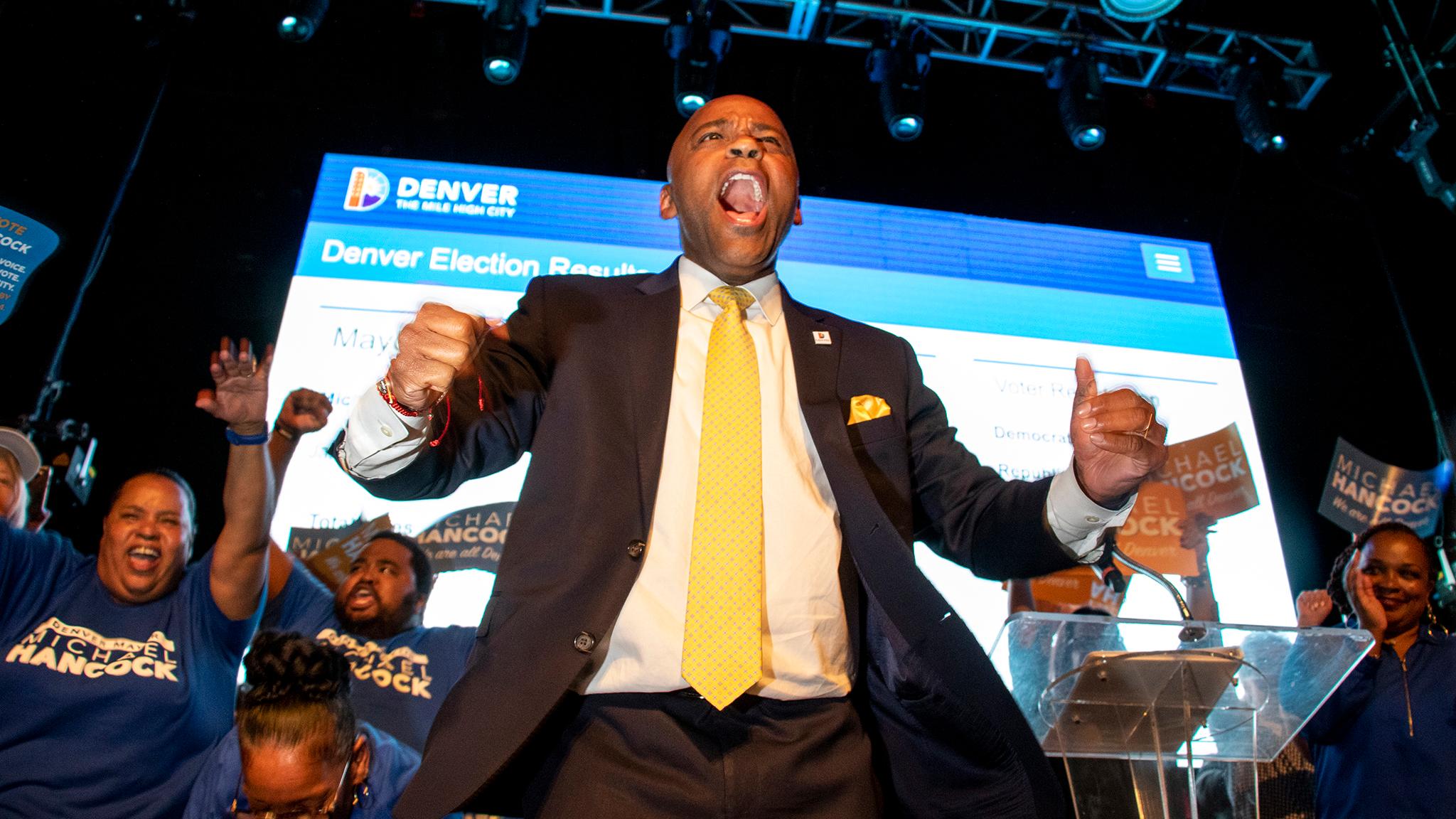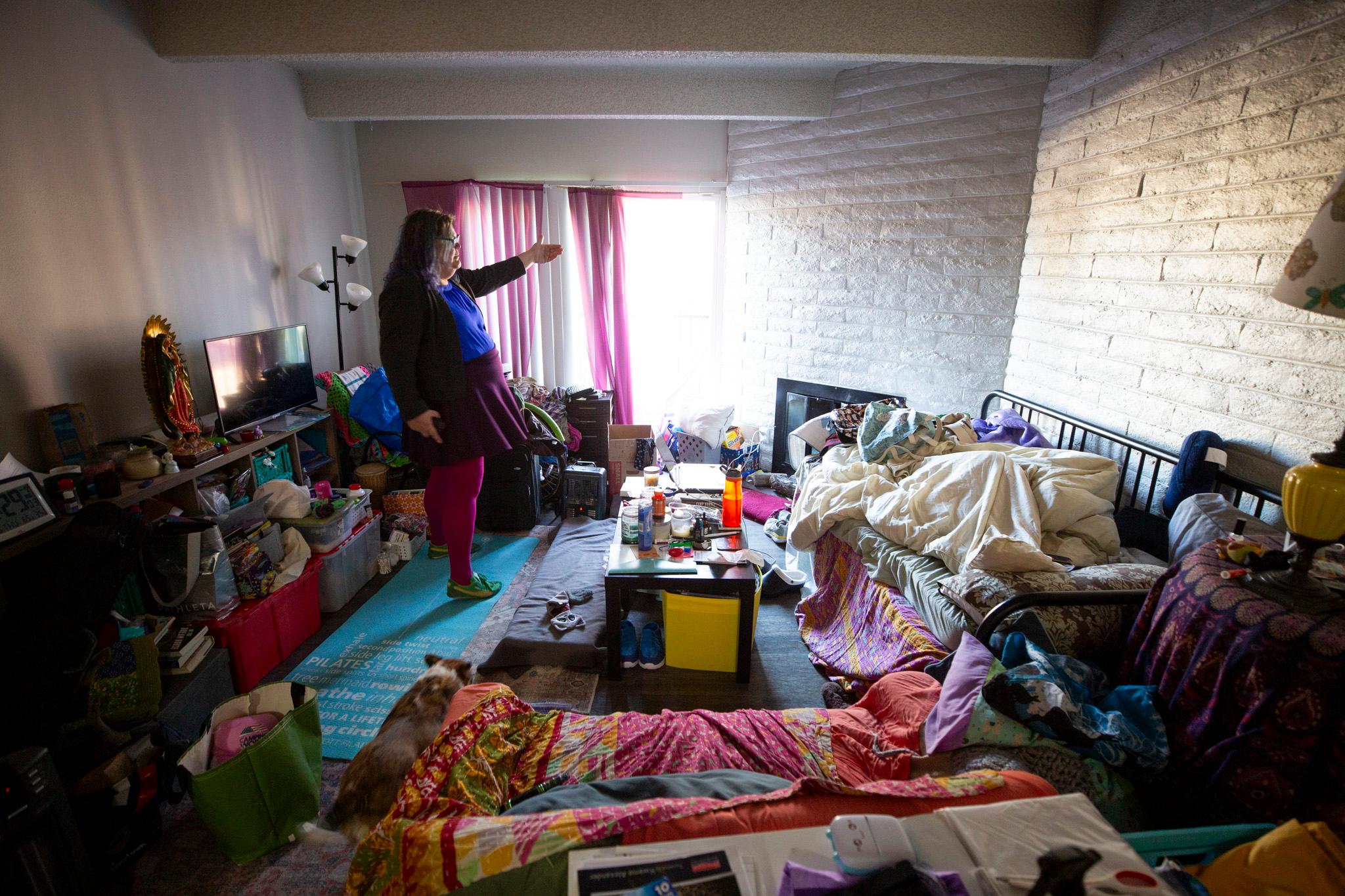Voters reelected Michael Hancock on Tuesday, gesturing approval -- but not brimming support -- of Denver's direction over the last eight years.
The incumbent beat neighborhood development consultant Jamie Giellis, a newcomer to Denver politics who aimed to become the city's first woman to serve as mayor, in a runoff election.
Hancock had won about 56 percent of the vote when Giellis conceded at about 9:20 p.m. Tuesday. His lead stood steady, with 20,519 more votes than his opponent, according to final unofficial results from the Denver Elections Division.
"Tonight, we won this race together," Hancock said to a crowd of hundreds at the EXDO Events Center who chanted "Four more years!" He said the win is "for everybody in Denver."
Hancock will start his final four-year term July 15.
"I said from day one, this was a job evaluation for me," Hancock told Denverite. "It was a job interview for Jamie. There's always things that you've done well, things you get better at, and we're going to take that to heart."
Giellis walked on stage at Ophelia's Electric Soap Box in Five Points before her supporters and told them she had called Hancock to congratulate him.
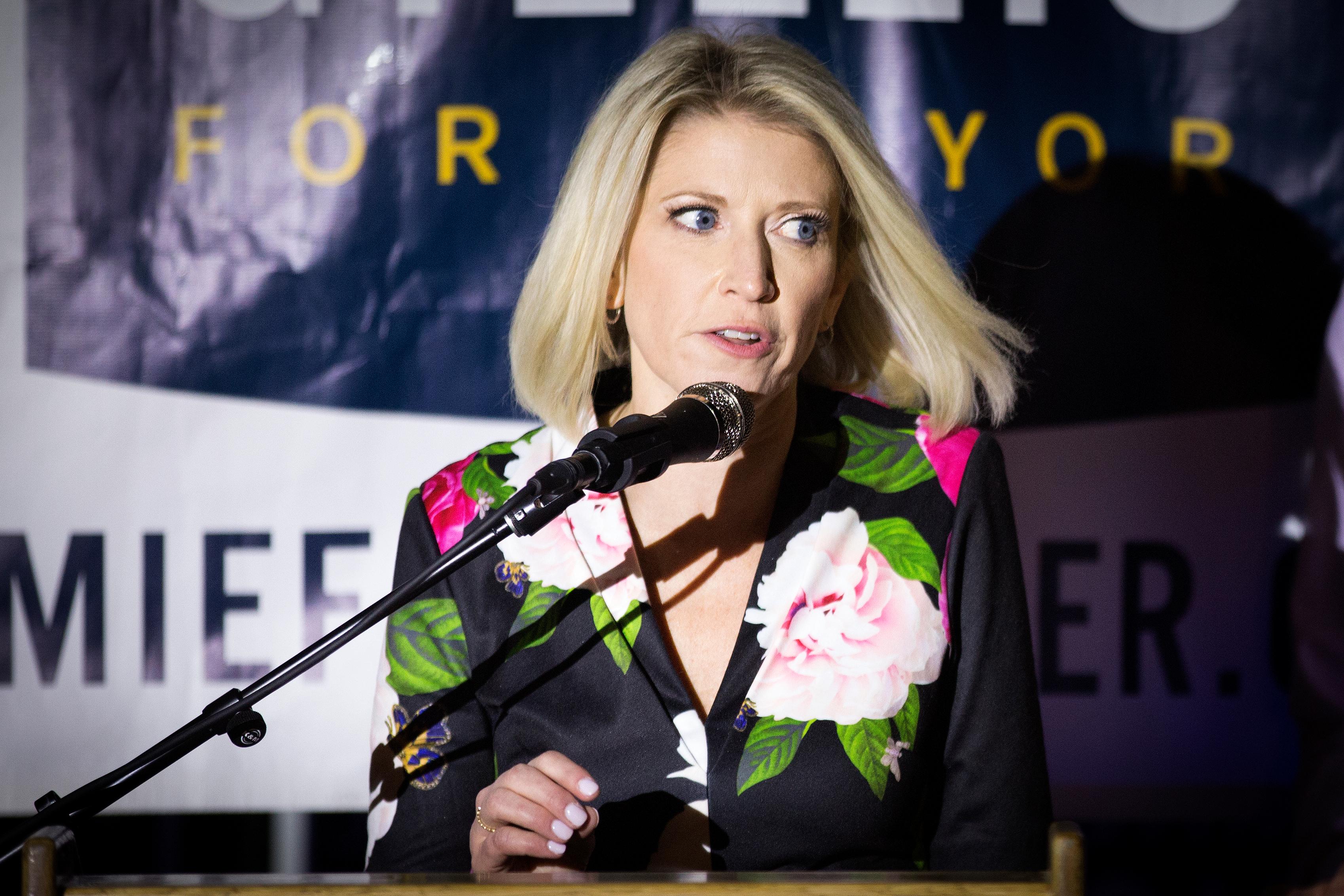
"This is not the speech I wanted to give or the outcome that we wanted, but we must move forward as a city and a community," Giellis said. "The most important thing that happens is we changed the conversation in Denver."
Tuesday's results put a period on the election season, but an ellipsis on what's to come.
More people voted against Hancock than for him in May, and Tuesday's results do not exactly convey a full vote of confidence. They instead show a city divided over its trajectory.
"My sense is the message he got is to keep up some of the good work but be much more attentive to neighborhood, transportation and growth issues," said Paul Teske, dean of the University of Colorado Denver's School of Public Affairs. "I don't know what that really means, especially if the economy slows."
The mayor will spend his last term unconcerned about reelection, he said, and will focus on implementing the many plans his administration has published but hasn't executed.
"You don't waste the final term," he said. "The final term is an opportunity to be bold on some things and really get some of the things done that you want to get done."
Giellis gave the incumbent a run for his money, literally and figuratively. Hancock raised about $2.7 million to her $714,000. But Giellis made it a race and wants that fact to stick with the mayor.
"I hope he learns that as a third-term incumbent, he was pushed into a runoff and the race, at the end of the day, was still pretty close," she said. "I think that means that there is a significant chunk of this city that is really frustrated and feels unheard and I hope he opens up the city to that conversation about how he addresses a lot of that ... because ultimately that will be a determinant of our success as a city longterm."
Hancock said he talked with Giellis on the phone, and that the two agreed to have a beer and discuss the city's future. The dueling campaigns convinced him to reexamine how he interacts with neighborhoods, among other issues.
"I think community engagement is one of them," Hancock said. "Making sure that we bring more people to the table. We thought we were doing pretty good with all of our regular communications, but I think there's some people that we were not reaching and we've got to do a better job in reaching them and engaging with them."
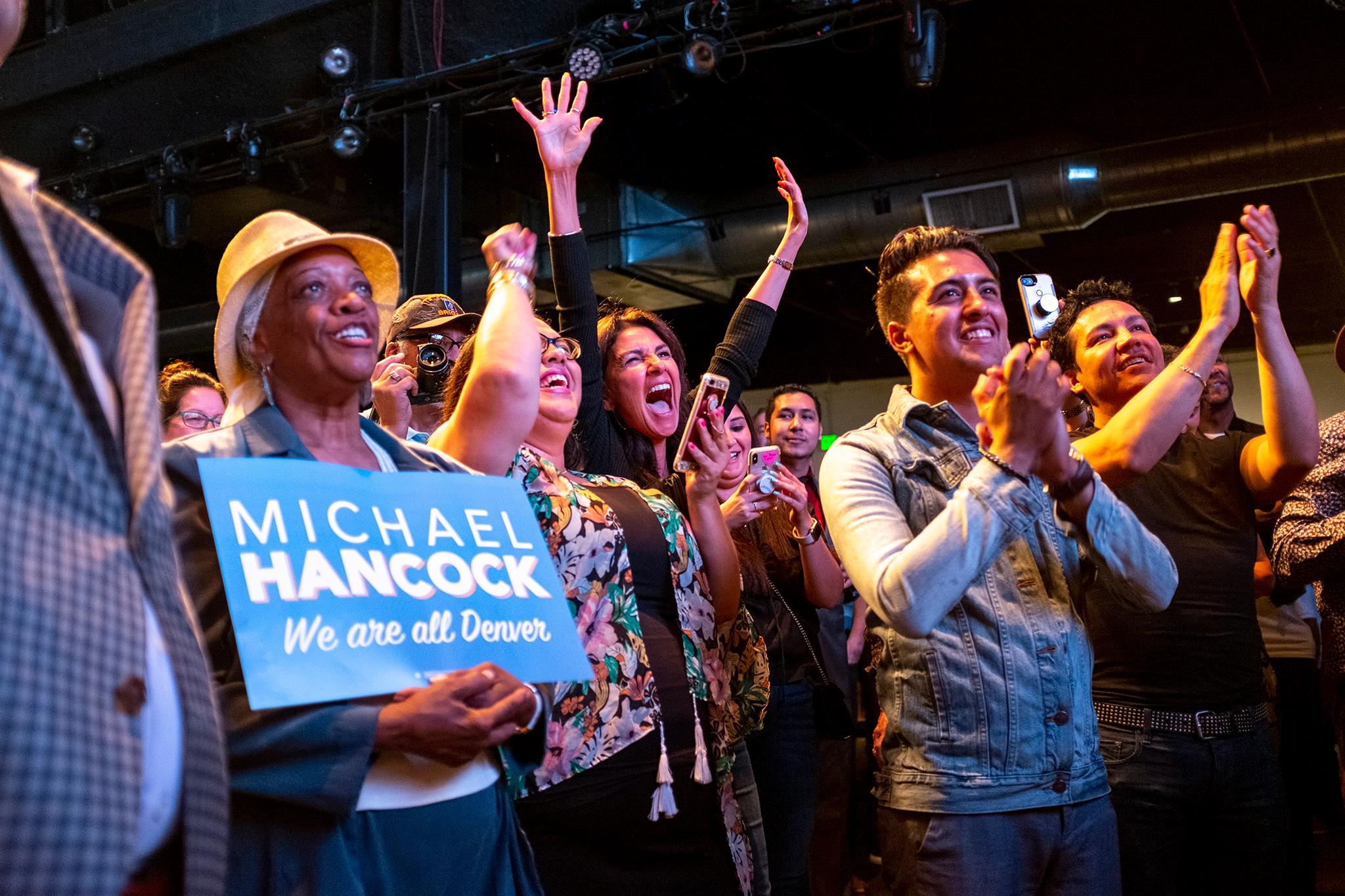
Turnout was lower compared to May's general election, with about 165,000 ballots cast, or 35 percent of registered voters.
Last month, about 186,400 Denverites cast ballots. Teske said the lower figures could represent the campaigns going negative toward the end.
"I imagine some of the gaffes and flips didn't help Giellis, combined with Hancock's money and him being a known quantity," he said. "The going negative in the last 10 days -- the research says there that going negative turns people off and people don't vote."
Hancock supporter José Castorena was one of the thousands of voters. He volunteered for Hancock and called the results "a win for Old Denver."
"I'm part of the minority. I'm from Mexico," Castorena said. "I feel represented with Michael Hancock. I believe in him."
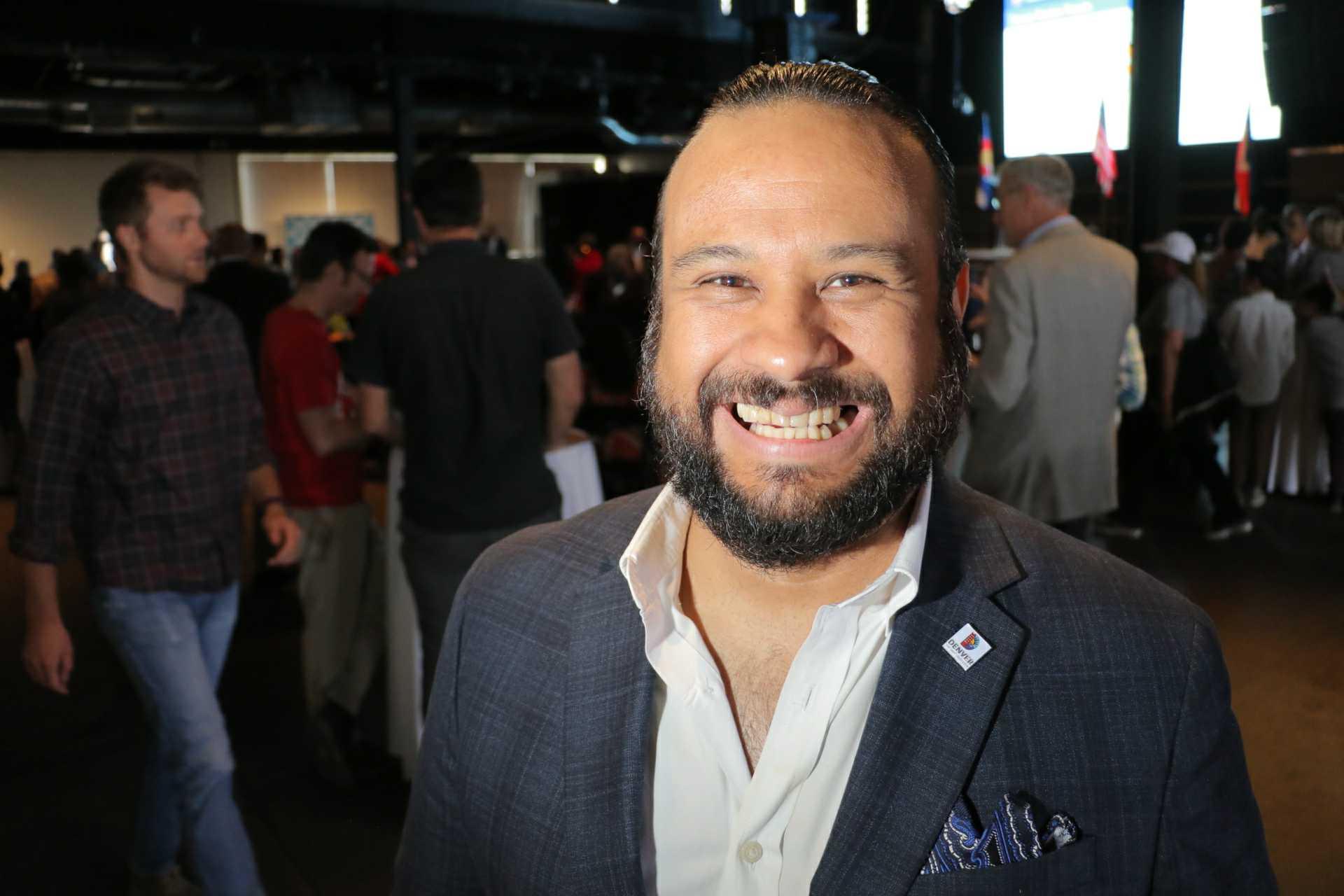
In contrast to that remark, the undeniable gentrification and displacement that's occurred under Hancock's watch was a common prod used by Giellis and her supporters. It's representative of a political race -- and a city -- with a lot of moving parts that left pundits and campaigns uncertain of the outcomes.
The campaigns went at each other -- and voters -- from all angles. But the most defining issues were probably development, homelessness and each candidate's character.
Hancock repeatedly pointed to Denver's economic strength, its job market and its attractiveness to newcomers and visitors as a success and point of pride.
Giellis, in turn, bashed Hancock's tenure throughout the campaign. Denverites were burdened with "runaway development," resulting in the displacement of longtime locals and businesses, she said, placing those problems on Hancock's shoulders.
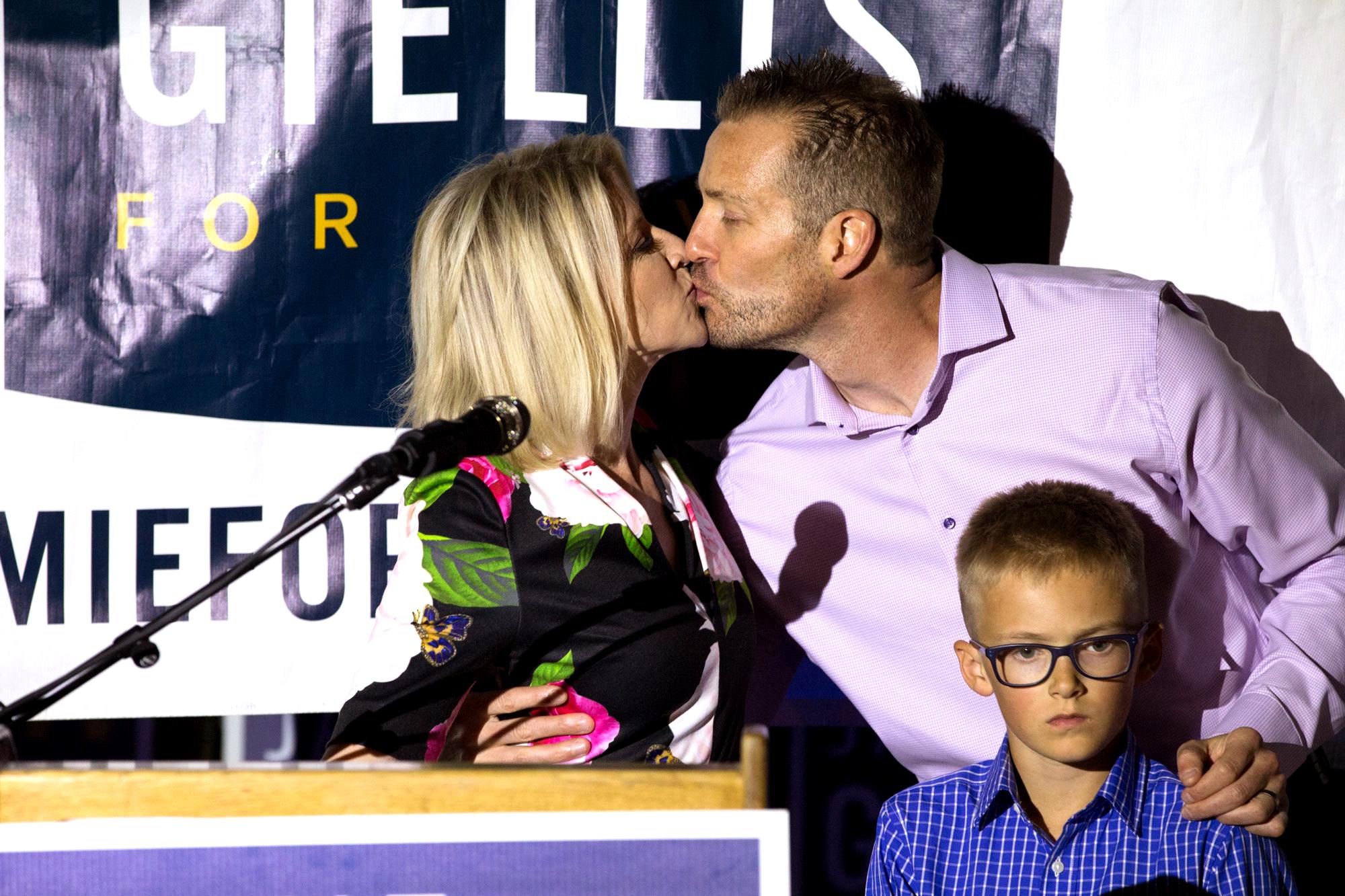
Capitol Hill resident Betty Robinson stood feet away from Giellis as she conceded. Despite the loss, Robinson kept cheering when Giellis spoke.
Robinson said Giellis was fighting to make changes for people from all races and creeds; Giellis mentioned the need to support the Latino, African American, Asian American, immigrant and refugee residents during her concession speech.
"As far as Mayor Hancock goes, I hope that the city of Denver continues to grow, continues to be mindful of those individuals who are Denver residents for the long-term, like decades and decades and decades, they all need to be heard," Robinson said.
Hancock's 20-year vision for the city will progress with his win. Giellis had pledged to revisit his administration's plan for growth and development -- including more density in traditionally single-family neighborhoods -- if elected.
On homelessness, Giellis confused voters with her wobbly stance on Denver's urban camping ban, which criminalizes sheltering in public. She would end the ban as mayor, she originally said, before walking back that stance. She later flipped again, saying she would aim to repeal it, but that the City Council technically decides.
All the while the candidate and her backers rebuked the mayor for the massive amounts of unhoused people on Denver's streets and his administration's "sweeps," in which officials force people sheltering in public to move along, even if they have nowhere to go.
Hancock says he will launch a cabinet-level housing department to get at the problem.
After the general election, things got personal. Giellis tried framing Hancock as a sexual harasser who created a hostile culture for women that trickled down through government departments. Hancock tried framing Giellis as out of touch with non-white Denverites.
The election results remain unofficial. The Denver Elections Division will certify them on June 13.
Denverite reporter Esteban L. Hernandez contributed to this report.

